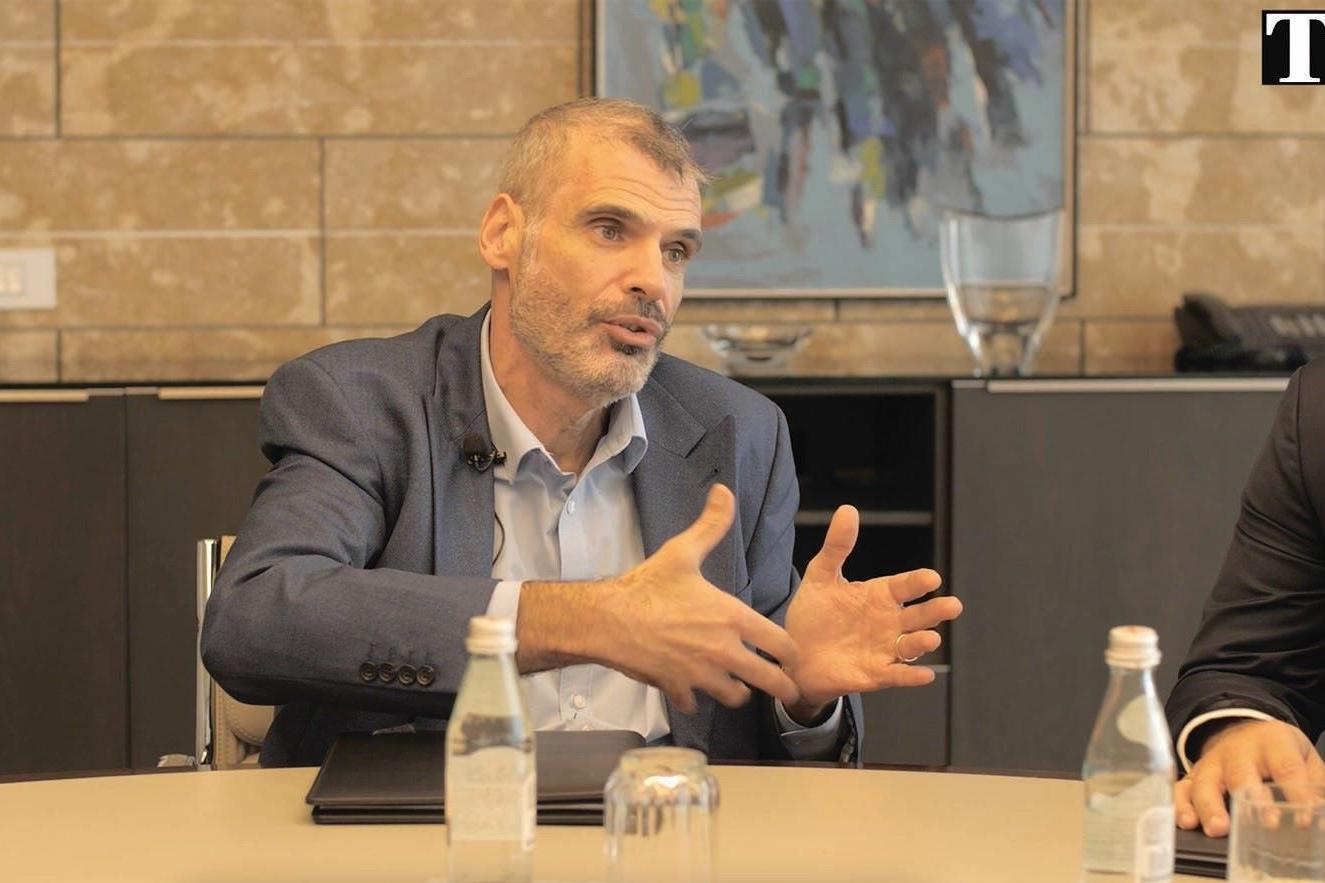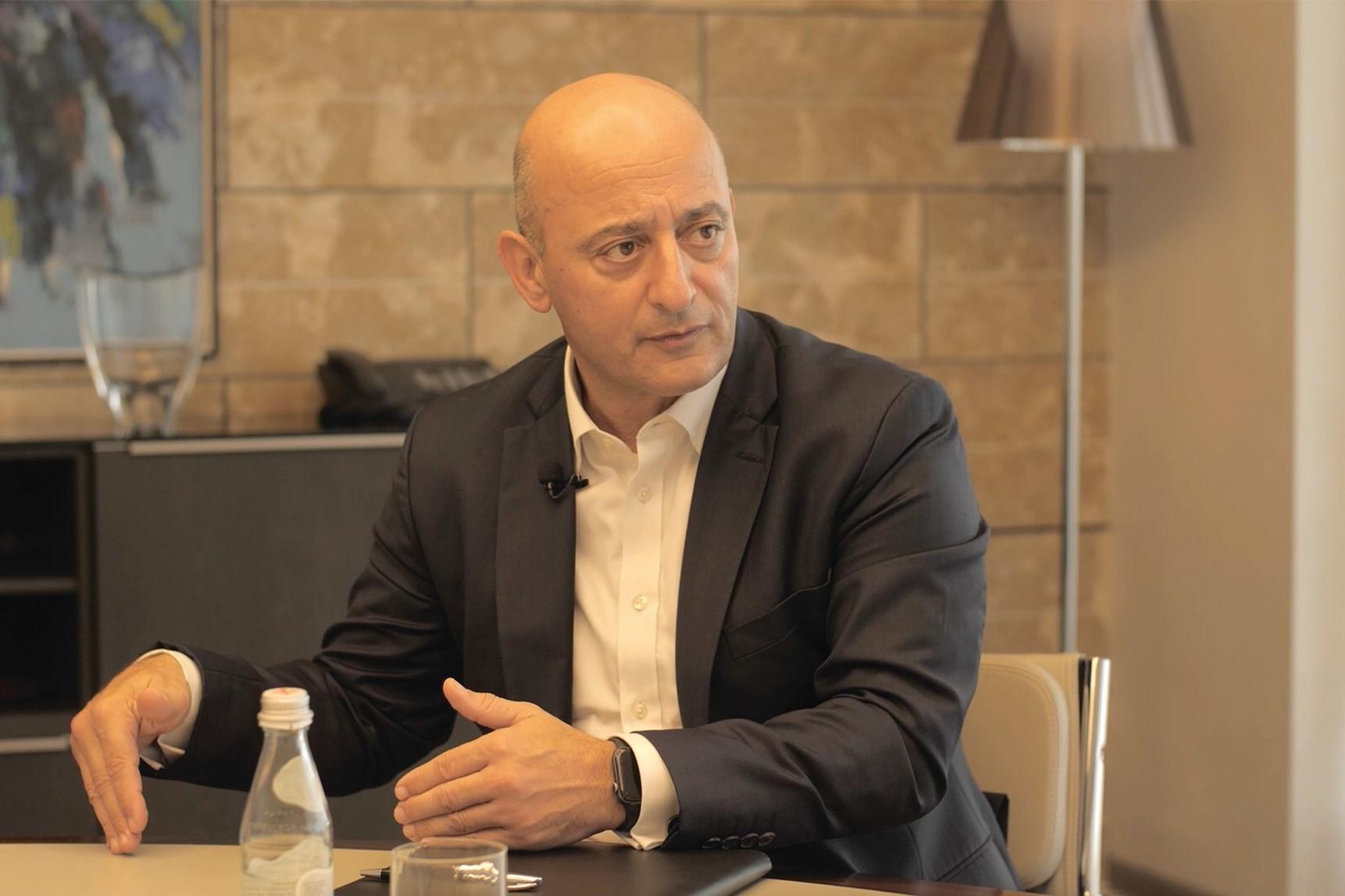Bank of Valletta chairman Gordon Cordina and CEO Kenneth Farrugia talk about investing in property, the bank’s social role and competition from Revolut. Interview by Mark Laurence Zammit
The Ukraine war has sparked a major hike in energy prices across Europe, forcing a number of governments to resort to measures to try to stave off devastating repercussions on the public and businesses.
But if international energy price hikes persist long term, it would be “wise” for Malta to stop subsidies and allow local prices to reflect the international energy market price, according to leading economist and BOV chairman Gordon Cordina.
And while prices are cushioned, households and businesses should invest in greener energy and cleaner technology to brace themselves for future policies and EU regulations that will inevitably penalise polluters more than ever, and will render energy-inefficient properties virtually impossible to sell.
“We were lucky to have an economy that was able to withstand the blow of the pandemic. It will likely be strong enough to withstand the second blow that we’re experiencing now as well – the Ukraine war – but a third catastrophe would likely land us where many other countries are now,” Cordina said.
“Having said that, even though we can weather this storm now, if international prices stabilise, our country should begin to reflect those prices in our bills. We can cushion a temporary shock like this one, but not a long-term price hike.”
As the world braces itself for an apparently looming recession, Cordina believes Malta could avoid it, or at least experience a more marginal impact.
“Most island economies depend on one or two economic sectors, but unlike them, the strength of Malta’s economy lies in harnessing several industries,” BOV CEO Kenneth Farrugia said.
“We generate money not only from tourism, but from a range of other industries like aviation, gaming and financial services. That’s why our economy has proved extraordinarily resilient,” said Farrugia, a seasoned banker who was appointed CEO last October.
The two run Malta’s largest bank, which provides services to 365,000 clients, 20,000 of which are businesses, across 30 branches and ATMs, and a range of online and mobile services.
 BoV chairman Gordon Cordina
BoV chairman Gordon CordinaHas the bank lost its social soul?
Like most financial institutions, Bank of Valletta has over the past years been gradually digitalising most of its services and hiking up fees for some over-the-counter services, causing distress among several elderly people as well as IT-illiterate people who fear that a simple trip to the bank to deposit a cheque will soon become almost impossible.
Farrugia and Cordina are determined to move further ahead into the digital age because the younger generations are far more reluctant to go to the bank nowadays. But they vowed to keep enough branches and ATMs open until there are people in the population who need them.
 Bank of Valletta CEO Kenneth Farrugia
Bank of Valletta CEO Kenneth Farrugia“We only closed two branches so far, and that’s because they were in close proximity to other branches. We remain the bank with the largest footprint,” Farrugia said.
“We’re not on a quest to close branches. We are simply observing what our customers want and adjusting our services accordingly.”
They said many new customers and businesses are starting to prefer digital services because they are more efficient and environmentally friendly. But the bank is also aware that elderly people make up a quarter of the population and is therefore tailoring branch opening times and priority services for them.
It might actually be better for us if Revolut were to take some of that off our plate
Up until the pandemic, Malta was a record cheque issuer, Farrugia said.
“We would process more than 350,000 cheques per month. For some time, it was the highest rate in Europe per capita. Everybody in Malta simply wrote a lot of cheques to pay for goods and services and to issue salaries, and that was extremely inefficient. Some businesses would issue 20,000 or 30,000 cheques annually,” he said.
“The pandemic forced us to implement new fees on cheques and their number has since plummeted to 114,000 per month. That’s a huge milestone because we’re saving on paper, working hours and the entire process is far more efficient for businesses.”
Does this mean cash will eventually die out?
Farrugia and Cordina said people are increasingly using cashless payments and the world is indeed moving in that direction, though it was impossible to predict the phasing out of cash.
Meanwhile, competing digital platforms have come on stream, with Revolut leading the way.
Revolut first became available to users in Malta in 2018 and, in early 2021, it said it had 190,000 customers in Malta, with thousands of other believed to be using it since.
How bad was Revolut for BOV?
Not much, according to Cordina and Farrugia. In some sense, it actually helped them.
Despite BOV having developed its mobile-to-mobile service before Revolut came into the market, the local bank might still not be able to compete with the international payment service. But that is not where BOV makes the most money either.
“It’s home, car and business loans, the pension schemes and other services that are really profitable for the bank, and people will still come to us for those,” Cordina said.
“Transferring payments is quite inefficient for a bank like us, so it might actually even be good for us if Revolut were to take some of that off our plate.”
Farrugia adds: “We can co-exist because banks like ours also enjoy customers’ trust more than Revolut.”
Unsellable property
Despite the daily exodus of new cars hitting the streets and the seemingly unbridled construction frenzy, BOV continues to advertise home loans and car loans, encouraging people to buy more of what is seemingly suffocating the country.
Both Farrugia and Cordina say they cannot and will not stop doing that, but stressed they are doing their “utmost” to incentivise people to purchase cleaner and greener buildings and vehicles.
“The problem is not the cars and the buildings, really, but their lack of aesthetic beauty, their inefficiency and unsustainability,” Cordina said.
“Our society faces a future of EU and national regulations that will leave us no option but to operate in an environmentally and socially friendly way and to employ good governance leadership, and we feel responsible to drive our customers in that direction.”
Farrugia said it would be wise for people to invest in making their properties more efficient now because a house or an apartment that wastes too much energy will soon become like one that has been built without a permit – nobody will want to buy it.
This is based on EU legislation, which is stipulating that if you want a loan to purchase or upgrade a property in the coming years, you will need to ensure it meets environmental standards.
As for property prices, will they continue to skyrocket?
Cordina and Farrugia cannot be sure, but they said that if the economy continues to grow, chances are that so will property prices.